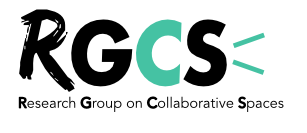Presentation of Kaunas as RGCs chapter
Prof. Vladislav V. Fomin, vvfomin@gmail.com
Viktorija Janavičienė, Viktorija.Janaviciene@knf.vu.lt
The city of Kaunas is the second largest Lithuania‘s city. Kaunas is located at the confluence of the two largest Lithuanian rivers, surrounded by the hills and situated at the crossing of international roads going North to South (Tallinn to Warsaw, to Berlin) and East to West (Minsk to Klaipeda). Due to its geographical position, Kaunas is Lithuania‘s most important center of multi-modal communication.
The city is famous for its Interwar architecture which was awarded the European Heritage label and is on its way to UNESCO. Kaunas is the only city in the world where so much of the style of the buildings has survived to the present day. The city keeps the authentic spirit of the country‘s national character alive.
Kaunas, also called the temporary capital city of Lithuania, was chosen as the European Capital of Culture 2022. The title of the Capital of Culture is given to European cities that are experiencing certain transformations of identities or are on the verge of a former and future identity. In its transformation from temporary to contemporary capital, Kaunas departs not only from its identity of the interwar capital of Lithuania. In recent years Kaunas has entered a road of change away from its identity of nationalistic stronghold and second to Vilnius city, demonstrating a rapid and significant growth in international- and business-affairs.
Today, Kaunas is Lithuania‘s most important center of communication, business and industry where MedTech and ICT are among the key sectors. Kaunas also has the largest cargo airport in the country and the largest Free Economic Zone in Lithuania. Kaunas municipality is the first and only municipality in Lithuania that organizes a startup support program and provides direct financial assistance, making Kaunas city friendly, open and creative space for business development.
The industry in Kaunas has all the ingredients to ensure successful growth, but the biggest strength of this city are young specialists with high qualifications and skills. With over 35,000 students (the largest number in Lithuania) studying at one of the seven universities, this city is frequently called the most academical city in the country, because of its capability to consistently produce a young, educated and highly motivated workforce, which is especially suited to diverse and innovative business services.
Having Kaunas as RGCS branch, we are looking forward to closely collaborate with universities, Industrial Parks, and Kaunas City Administration in promoting and fertilizing the transformational ideas, practices, and policies. We see the RGCS network and the City of Kaunas benefitting from academia-industry collaboration established through juxtapositions of local and international, conservative and innovative, experimentation and preservation.
